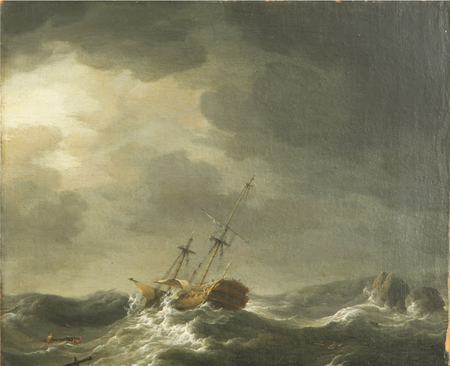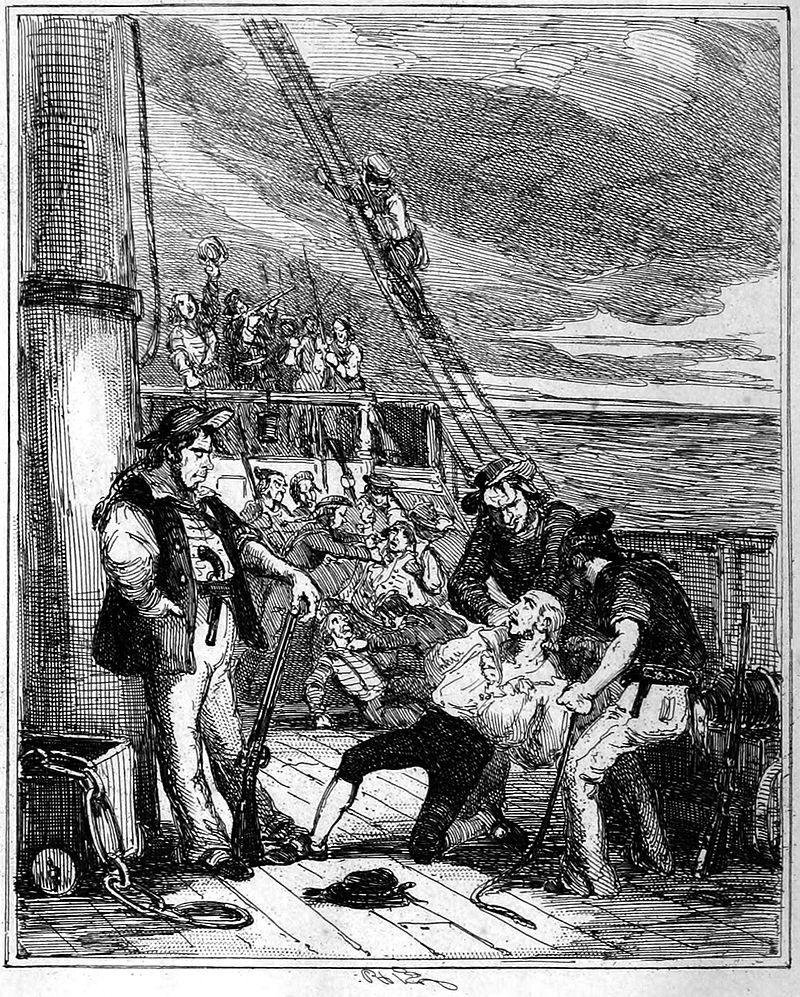So I’ve finally finished painting my flat after starting 6 months ago and I’m feeling pleased at seeing the colours on the wall, especially when it’s been so grey and damp outside lately. I might be in the minority but I find painting very mediative, it’s nice to concentrate on simple tasks although think my edges are still a bit wobbly. Still, it gives me a chance to catch up on some audiobooks I have been saving for large walks or tasks. My choice for listening while decorating my bathroom was the utterly brilliant The Wager by David Grann, and is definitely in the category of ‘true life is weirder than fiction’ tales. The book is beautifully written, sketching out an extraordinary series of events that led to a group of men being shipwrecked off the coast of Chile in 1741, managing to survive deeply difficult winter conditions on a desolate island, only to then divide into factions and set out to try to be rescued. Even the name of the ship suggests a gamble or a risk, little did the men on board know how bad things were about to get when they hit a storm in Cape Horn.
The precise details on events are set out in this wiki page they are quite complicated but briefly when the ship went down in a storm, the crew made it to an uninhabited island. After salvaging what they could from the wreckage, tensions grew as food needed to be rationed and living conditions worsened in the height of winter. Soon, some of the men started to doubt the captain (named David Cheap) and his ability to lead the group. Infighting, stealing of food and then later insubordination followed but it feels sort of inevitable under the circumstances. However mutiny is one of the most serious allegations a sailor can be accused of, so the group that was starting to grow against the captain needed to be clear to document their reasoning should they later face a tribunal if they survived a journey back to mainland (the tribunal did indeed happen much later in 1746). The key questions when you listen to this harrowing tale unfold are if social order can withstand such extraordinary circumstances. When there is no longer a ship can you even have a mutiny? And does the captain still have authority when he’s lost the confidence of the surviving crew?
Of course, mutiny and treachery has been on public minds lately thanks to the very popular Traitors series airing on BBC. I enjoyed watching the ‘faithful’ group try to work out who among them are two-faced ‘traitors’, plotting their demise to win the jackpot. No spoilers here but, as a social experiment it’s fascinating to watch what treachery can do to how a group functions and how easily led people can be in terms of decision making if a strong personality gets involved. This is a gameshow, but you can see why mutiny is the worst thing that can happen on a ship and how emotions (and rebellions) can easily grow. A ship, like any society, functions via a set of complex social rules, protocols and hierarchies which are needed when humans are living in such confined spaces for months, even years on end. There can be different models of this (some are loose republics, some dictatorships) but even in the pirate code, there’s punishment for desertion and rebellion. It seems remarkable that even when the Wager men were barely surviving these social codes held long enough for them to write, hands shaking with hunger, a detailed rationale for their future actions against other members of the crew should they even survive the consequences at a later date.
What Grann also does well in the book is explore the notion of unreliable narratives and trying to piece together what he thinks happened from what’s left of the crew. The story comes to us fragmented, conflicted, based on very different perspectives. It is remarkable what did survive. This is the trouble with all history of course, working out who to believe is a difficult one when, especially in this story, where everyone has so much to gain from discrediting the other. Cheap shot another member of the crew after tensions were running high, as the men fought and scrapped over rations. The man later died and many of the group were outraged, cried murder, but the captain and others on his side said he was provoked after months of insubordination. The stories shift back and forth like waves on a shore.
When the first group of men were rescued they were a sorry sight to behold. When they told their story of desperation and disorder most onlookers were amazed they had even survived such arduous conditions, no-one had heard any news of the ship and its crew for years. So they were believed. Then, when later another group from the same ship were found (which included the captain) and gave a very different series of events it quite understandably caused a sensation (as if things couldn’t be worse for them that group were captured by the Spanish when they made it to the mainland, sent to various prisons, some were enslaved, others trekked though the Andes before finally making it back to the UK). The court marshal which followed once Cheap got back to England and gave his account was more political than anything. The authorities really wanted the whole affair to sink into the watery depths. The reason for the original voyage was to rob the Spanish of their colonial ill-gotten gains, but the entire fleet was lost and there was nothing to show for it. The crew members accused of mutiny argued that because the ship had sunk, they were no longer subject to naval law. An account from the time noted that:
‘Their Lordships knew that a conviction of mutiny would be unpopular with the country. Things were bad with the Navy in April 1746. Their Lordships were out of favour. One of the reasons for this was their harsh treatment of Admiral Vernon, a popular figure with the public. The defence that the Mutineers had was that as their wages automatically stopped when the ship was lost, they were no longer under naval law. Existence of such a misconception could lead, in time of enemy action or other hazard, to anticipation that the ship was already lost. Anson realised the danger and corrected this misconception. As Lord Commissioner he removed any further doubt in 1747. An Act was passed ‘for extending the discipline of the Navy to crews of his majesty’s ships, wrecked lost or taken, and continuing to receive wages upon certain conditions…’ The survivors of the Wager were extremely lucky not to be convicted of mutiny and owe their acquittal not only to the unpopularity of the Board, but to the strength of public opinion, to the fact that their miraculous escapes had captured the public fancy’.
Mutinies always capture the public imagination although I wouldn’t describe the crew as ‘lucky’ in any sense of the word. However it’s interesting to see how much sway public opinion had in the case and the subsequent changes made as a consequence. Lord Byron was the great grandson of one of the surviving crew members and in some of his work you can see a reflection on this dark part of his family history. In an excerpt from his poem ‘Darkness‘ it’s hard not to think of the Wager survivors, isolated, standing on their island, staring out at the vast expanse of inky sea. Not a dream but a living nightmare. I will leave last words of this post to him:
I had a dream, which was not all a dream.
The bright sun was extinguish’d, and the stars
Did wander darkling in the eternal space,
Rayless, and pathless, and the icy earth
Swung blind and blackening in the moonless air;
Morn came and went—and came, and brought no day,
And men forgot their passions in the dread.



wow!! That was a riveting read. Really enjoyed the turn of events. Like historical connections as you well know. Look forward to further like installments.
LikeLiked by 2 people
You’d love the book! Definitely worth a listen/read
LikeLiked by 1 person
Little did I know a paintbrush would lead me to tales of mutiny,however Eve as always spins a great yarn. NO NEED TO BUY THE BOOK OR DOWNLOAD THE AUDIO VERSION EVE has covered it all.well done as usual a fabulous tale well told
LikeLiked by 1 person
What a tale it is! Thanks as ever for reading 😊
LikeLike